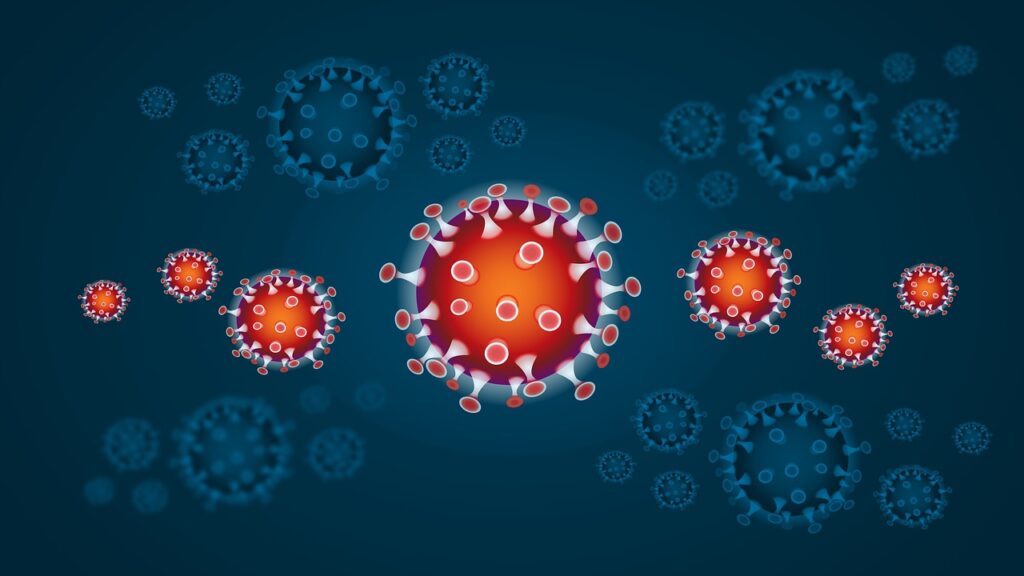Table of Contents
Introduction
In recent years, the gut microbiome has become a key player in human health, particularly in its role in immune function. The trillions of bacteria, fungi, and archaea that inhabit the digestive tract are not just passively living there; they actively contribute to our well-being by modulating the immune system, defending against pathogens, and even influencing the effectiveness of certain medical treatments. This complex ecosystem, which has co-evolved with humans, is essential to maintaining health and preventing disease.
This article will explore how the gut microbiome modulates the immune system, the relationship between gut health and immune response, and practical ways to support a healthy gut and, in turn, a robust immune system.
Understanding the Gut Microbiome
The gut microbiome consists of trillions of microorganisms, including bacteria, viruses, fungi, and archaea, residing primarily in the large intestine. This community is vast, with estimates suggesting that it includes over 1,000 species of bacteria, influenced by factors such as genetics, diet, environment, and lifestyle.
From digesting food to producing vitamins and short-chain fatty acids (SCFAs), regulating metabolism, and protecting against harmful pathogens, the microbiome performs many essential functions. However, one of its most important functions is interacting with the immune system.
The Diversity of the Gut Microbiome
One key characteristic of a healthy gut microbiome is its diversity. A diverse microbiome contains a wide variety of different microbial species, each contributing to the overall health of the ecosystem and, by extension, to our own health.
The composition of our gut microbiome is influenced by various factors, including:
- Genetics
- Diet
- Age
- Environment
- Medications (especially antibiotics)
- Stress levels
- Exercise habits
- Sleep
Understanding these factors is important because they directly impact how our gut microbiome interacts with our immune system.

How the Gut Microbiome Influences Immune Function
The relationship between the gut microbiome and the immune system is complex and bidirectional. Your gut microbiome plays an important role in the development and function of your immune system.
The gastrointestinal tract contains about 70% of the body’s immune cells.
The immune system is a network of cells, tissues, and organs that work together to defend the body against harmful invaders like bacteria, viruses, and other pathogens. It consists of two main parts:
- Innate Immune System: This is our body’s first line of defence. It includes physical barriers like skin and mucous membranes, as well as certain types of white blood cells that can quickly respond to a wide range of threats. The innate immune response has a role in maintaining a homeostatic environment by eliminating pathogenic bacteria and regulating the adaptive response to microbiota. These effects are mediated by factors such as secretory IgA (sIgA), toll-like receptor 5 (TLR5), autophagy, and inflammasomes. For example, slgA can bind and form complexes with commensal bacteria, which selectively presents the bacterial components to tolerogenic dendritic cells. As an anti-inflammatory molecule, slgA can reduce the inflammatory response that could result from the bacteria load in the organs. On the other hand, dysbiosis of microbiota can alter the sIgA response and lead to unregulated bacterial growth.
- Adaptive Immune System: This is a more specialised defence system that develops over time. It includes T cells and B cells, which can recognise specific pathogens and create a “memory” of them for faster response in future. Depending on the bacteria species, the CD4 T cell responses vary significantly, which leads to the differentiation into distinct types such as helper T cells (Th1, Th2, and Th17) and regulatory T cells. Disorders in microbiota development during the maturation of the immune system could lead to deteriorated immunological tolerance and autoimmune conditions.
The Gut-Immune: How Your Microbiome Shapes Your Defences
Let us explore how the gut microbiome and the immune system interact to protect our health.
1. Training the Immune System
One of the roles of the gut microbiome is in “educating” our immune system. From birth, our immune system learns to distinguish between harmful pathogens and beneficial or harmless microorganisms. This process is largely driven by our exposure to the diverse array of microbes in our gut.
As we grow and our microbiome develops, our immune system learns to:
– Recognise and tolerate beneficial bacteria
– Identify and respond to potential threats
– Maintain a balance between pro-inflammatory and anti-inflammatory responses
This training is essential for developing a well-regulated immune system that can effectively protect us without overreacting and causing harmful inflammation.
Certain gut bacteria produce signalling molecules, known as SCFAs which are needed for immune system regulation. SCFAs, such as butyrate, propionate, and acetate, are the byproducts of fibre fermentation by beneficial gut bacteria. These molecules have been shown to enhance the function of regulatory T cells (Tregs), which help to control immune responses and prevent autoimmune conditions.
Immunoglobulin A (IgA) plays a crucial role in maintaining immune balance in the gut. It is the most abundant antibody found in mucosal areas, including the gastrointestinal tract. IgA helps protect the gut by:
1. Neutralising pathogens: IgA binds to harmful bacteria, viruses, and toxins, preventing them from adhering to the gut lining and entering the bloodstream.
2. Promoting a healthy microbiome: IgA interacts with gut bacteria, promoting beneficial microbes while limiting the overgrowth of harmful species, helping maintain microbial balance.
3. Preventing inflammation: By coating potential pathogens, IgA prevents an overactive immune response, reducing unnecessary inflammation and tissue damage.
This ensures that the immune system can differentiate between harmful pathogens and beneficial gut bacteria, supporting overall gut health and immune regulation.
2. Barrier Function
The gut lining, also called the intestinal epithelium, serves as a physical barrier between the external environment (the contents of the gut) and the internal environment of the body. This barrier is semi-permeable, meaning it allows the absorption of nutrients while blocking harmful substances like toxins and pathogens.
Beneficial bacteria in our gut help maintain the integrity of the gut lining, which acts as a physical barrier against harmful microorganisms.
One of the primary ways the gut microbiome defends against disease is by enhancing the barrier function of the intestinal lining. A healthy gut microbiome helps maintain the integrity of this barrier by:
- Strengthening tight junctions between epithelial cells
- Producing mucus that forms a protective layer
- Competing with harmful bacteria for resources and space
For example, beneficial bacteria like Akkermansia muciniphila help to strengthen the mucus layer that covers the intestinal walls, protecting the body from pathogens and toxins that might otherwise slip through.
If this barrier becomes compromised—a condition often referred to as “leaky gut”—it can allow harmful particles to pass into the bloodstream, triggering an immune response. This chronic low-grade inflammation can contribute to a variety of conditions, including autoimmune diseases, allergies, cardiovascular disease, mental health conditions, obesity, diabetes, and even cancer.
3. Regulation of Inflammation
Inflammation is an important part of the immune response, but when uncontrolled, it can lead to various health problems. The gut microbiome plays a role in regulating inflammation throughout the body.
Certain beneficial bacteria produce metabolites, such as SCFAs, produced when gut bacteria ferment dietary fibre, SCFAs have anti-inflammatory and immune-modulating effects, and Influence the production of pro- and anti-inflammatory cytokines (signalling molecules used by immune cells).
By maintaining a balance between pro- and anti-inflammatory responses, a healthy gut microbiome helps prevent chronic inflammation, which is associated with numerous diseases including inflammatory bowel disease, allergies, and even some forms of cancer.
4. Production of Immune-Boosting Compounds
Many gut bacteria produce compounds that directly support immune function. For example:
– SCFAs: As mentioned earlier, these compounds have anti-inflammatory properties. They also support the production and function of regulatory T cells, which help prevent autoimmune reactions.
– Vitamins: Some gut bacteria produce vitamins that are essential for immune function, such as vitamin K and several B vitamins.
– Antimicrobial peptides: Certain gut bacteria stimulate the production of antimicrobial peptides by intestinal cells, enhancing our defences against pathogens.
5. Modulation of Immune Cell Function
The gut microbiome can influence the development, maturation, and function of various immune cells. For instance:
– It affects the development and function of innate lymphoid cells, which play a role in maintaining the gut barrier and defending against pathogens.
– It influences the balance between different types of T cells, helping to maintain a proper balance between pro-inflammatory and regulatory immune responses.
– It can affect the production and activation of antibodies by B cells.
6. Systemic Effects on Immunity
The influence of the gut microbiome on immunity is not limited to the gut itself. Through various mechanisms, including the production of metabolites and the modulation of immune cell function, the gut microbiome can affect immune responses throughout the body.
When the gut microbiome is out of balance, the immune system can become dysregulated. This may lead to several health issues:
- Autoimmune Diseases
Autoimmune diseases, such as rheumatoid arthritis, lupus, and multiple sclerosis, occur when the immune system mistakenly attacks the body’s own tissues. Research has shown that dysbiosis in the gut can be a contributing factor. An overgrowth of certain harmful bacteria may trigger excessive immune activation, leading to chronic inflammation and autoimmunity.
For example, patients with autoimmune conditions often have lower levels of Akkermansia muciniphila and other beneficial bacteria that support gut barrier function and anti-inflammatory responses.
- Allergies and Asthma
Dysbiosis has also been linked to the development of allergies and asthma. The “hygiene hypothesis” suggests that a lack of microbial exposure in early life can impair the development of the immune system, making it more prone to overreact to harmless substances like pollen or food allergens.
Studies have found that children with imbalanced gut microbiota are more likely to develop allergic conditions. A healthy gut microbiome helps to educate the immune system, reducing the risk of hypersensitivity reactions.
Additionally, dysbiosis can weaken the overall immune response, making the body more susceptible to illnesses like the common cold or flu.
- Responses to infections in other parts of the body
A compromised gut microbiome can leave the body more vulnerable to infections. Harmful bacteria, such as Clostridioides difficile (C. diff), can take over when the balance of gut bacteria is disrupted, leading to severe infections. The loss of beneficial bacteria impairs the body’s ability to fight off these invaders.
- Mental health and neurodegenerative diseases (via the gut-brain axis)
How the Immune System Shapes the Gut Microbiome
Just as the gut microbiome influences the immune system, the immune system also plays a role in shaping the composition of the gut microbiome:
- Promoting microbial diversity: A well-functioning immune system helps maintain a diverse and balanced gut microbiome by preventing the overgrowth of any single species.
- Producing antimicrobial compounds: Immune cells in the gut produce antimicrobial peptides that selectively target harmful bacteria while sparing beneficial ones.

Factors That Influence the Gut-Immune Relationship
Understanding the factors that affect our gut microbiome can help us maintain a healthy gut-immune relationship.
1. Diet
Diet is perhaps the most significant factor influencing our gut microbiome. Different types of bacteria thrive on different nutrients, so our diet directly shapes the composition of our gut microbiome.
– Fibre- rich foods: Fruits, vegetables, whole grains, and legumes provide prebiotics – compounds that feed beneficial bacteria. These foods promote the growth of bacteria that produce SCFAs, supporting a healthy gut-immune relationship.
– Fermented foods: Yogurt, kefir, sauerkraut, and other fermented foods contain probiotics – live beneficial bacteria that can contribute to a diverse gut microbiome.
– Processed foods and added sugars: These can promote the growth of less beneficial bacteria and may contribute to inflammation.
2. Antibiotics
While antibiotics are crucial for fighting bacterial infections, they can also disrupt the gut microbiome by killing off beneficial bacteria along with harmful ones. This disruption can temporarily weaken our immune defenses.
When antibiotics are necessary, it is important to:
– Only use them when prescribed by a healthcare professional
– Complete the full course as directed
– Consider taking probiotics or eating probiotic-rich foods to help restore gut balance
3. Stress
Chronic stress can negatively impact both the gut microbiome and the immune system.
Stress can:
– Alter the composition of the gut microbiome
– Increase gut permeability (sometimes called “leaky gut”)
– Suppress immune function
Managing stress through techniques like meditation, exercise, and adequate sleep can help maintain a healthy gut-immune relationship.
4. Get adequate sleep
Sleep is essential for immune function and overall health. Poor sleep quality or insufficient sleep can disrupt the gut microbiome and impair immune responses. Aim for 7-9 hours of quality sleep each night to support a healthy immune system.
5. Exercise
Exercise has been shown to promote a diverse and healthy gut microbiome. Moderate physical activity can enhance the production of SCFAs, reduce inflammation, and improve immune regulation.
6. Environmental Factors
Early life exposures: The development of the microbiome starts at birth, influenced by factors such as delivery mode (vaginal vs. caesarian), breastfeeding, diet, and environmental exposures. During infancy, the microbiome undergoes rapid changes as the baby is exposed to different microorganisms and starts eating solid foods. By the time the child reaches around 2-3 years old, the gut microbiome stabilises and becomes more diverse, resembling the composition and function seen in adults.
Our environment, including exposure to nature and various microorganisms, can influence our gut microbiome and immune function. For example:
– Living in overly sterile environments may reduce microbial diversity
– Exposure to a variety of environments and natural settings may promote a more robust and diverse microbiome
7. Consider probiotic supplements: While it is best to get probiotics from food, supplements may be beneficial in certain situations. Always consult with a healthcare provider before starting any new supplement regimen.
Conclusion
The gut microbiome plays a critical role in modulating the immune system and defending the body against disease. A healthy, balanced microbiome supports immune function by maintaining gut barrier integrity, training immune cells, and promoting anti-inflammatory responses. Conversely, an imbalanced gut microbiome can contribute to immune dysfunction, leading to autoimmune diseases, allergies, and infections.
By nurturing your gut microbiome through a healthy diet rich in probiotics and prebiotics, managing stress, getting enough sleep, and engaging in regular physical activity, you can support both your gut health and immune function.
This article is not intended to replace professional medical advice. If you have specific health concerns or conditions, consult with a healthcare professional for personalised guidance.
Disclaimer: The information provided in this article is for educational purposes only and should not be considered as medical advice. Always consult with a healthcare professional before making any changes to your diet or lifestyle.




Pingback: Gut Microbiome and Children’s Health: Building a Strong Gut Early in Life - MPHmedicalwriter
Купить рулонные шторы и жалюзи по отличным ценам с доставкой
кассетные рулонные шторы [url=https://www.rulonniye-shtori.ru/]https://www.rulonniye-shtori.ru/[/url] .
Опасные бритвы для мужчин — точность, стиль и долговечность
опасная бритва золинген [url=http://pro-nozhi.ru/]http://pro-nozhi.ru/[/url] .
Дипломные работы под ключ на vsehdiplom ru: высокое качество и доступные цены
заочний ру отзывы [url=https://www.vsehdiplom.ru/responses/podbor-literatury/]https://www.vsehdiplom.ru/responses/podbor-literatury/[/url] .
Every great journey begins with a health investment!
Healthy choices lead to a thriving life!
Quality supplements, for quality living!
Believe in better health; supplements can help!
Small steps lead to big changes!
vtkqj3vk4tuqjhwejhqw – mphmedicalwriter.com
https://NefeIlluddy.info